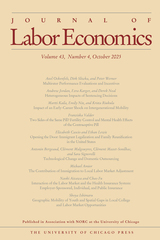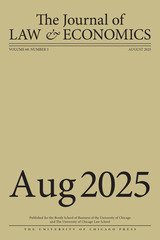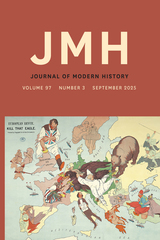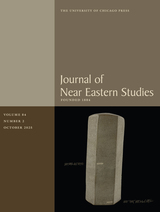3 books about Stuart, Joseph T.
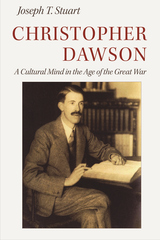
Christopher Dawson
A Cultural Mind in the Age of the Great War
Joseph T. Stuart
Catholic University of America Press, 2022
The English historian Christopher Dawson (1889-1970) was the first Catholic Studies professor at Harvard University and has been described as one of the foremost Catholic thinkers of modern times. His focus on culture prefigured its importance in Catholicism since Vatican Council II and in the rise of mainstream cultural history in the late twentieth century. How did Dawson think about culture and why does it matter? Joseph T. Stuart argues that through Dawson’s study of world cultures, he acquired a “cultural mind” by which he attempted to integrate knowledge according to four implicit rules: intellectual architecture, boundary thinking, intellectual asceticism, and intellectual bridges. Dawson’s multilayered approach to culture, instantiating John Henry Newman’s philosophical habit of mind, is key to his work and its relevance. By it, he responded to the cultural fragmentation he sensed after the Great War (1914-1918).
Stuart supports these claims by demonstrating how Dawson formed his cultural mind practicing an interdisciplinary science of culture involving anthropology, sociology, history, and comparative religion. Stuart shows how Dawson applied his cultural thinking to problems in politics and education.
This book establishes how Dawson’s simple definition of culture as a “common way of life” reconciles intellectualist and behavioral approaches to culture. In addition, Dawson’s cultural mind provides a synthesis helpful for recognizing the importance of Christian culture in education. It demonstrates principles which construct a more meaningful cultural history. Anyone interested in the idea of culture, the connection of religion to the social sciences, Catholic Studies, or Dawson studies will find this book an engaging and insightful intellectual history.
[more]

The Formation of Christendom
Christopher Dawson
Catholic University of America Press, 2026
Together with its sequel The Dividing of Christendom, this book was the fruit of the Harvard lectures that Christopher Dawson delivered as the first occupant of the Charles Chauncey Stillman Chair of Roman Catholic Studies from 1958-1962. Here, as in all his works, he sees religion as the dynamic element of culture.
This work traces the formation of Christian culture from its roots in the Judeo-Christian tradition through the rise and fall of medieval Christendom, and ends with an epilogue in which the author reflects on the defining characteristics of Christianity in general and the Catholic Church in particular.
In the introductory section of this work, Dawson highlights the importance of language in the origin and development of civilization. Christina Scott, the author’s daughter and first biographer, summarises Dawson’s ideas on this point in her work A Historian and his World: “In the beginning was the word: language was the gateway to the human world and was the single factor that distinguished man from the animal kingdom.” Language, as Dawson wrote, “enables man to think, to create a new world of imagination and reason.”
In parts two and three Dawson traces the beginnings of Christian culture in the first centuries after Christ through to the decline of medieval unity. Some of the tantalizing chapter headings include The Christian and Jewish Idea of Revelation, The Foundation of Europe: The Monks of the West, The Carolingian Age, Feudal Europe and the Age of Anarchy, The Achievement of Medieval Thought, and East and West in the Middle Ages.
Dawson shared with Arnold Toynbee the ideal of a universal spiritual society as the goal of history; but whereas Dr. Toynbee saw this as achievable by a consensus of the great world religions, Dawson concludes his work with a clear exposition of the Catholic ideal of a universal spiritual society. It provides an excellent summary of the author’s view of the uniqueness and universality of the Catholic Church, as well as its fundamentally non-sectarian basis.
His concluding words demonstrate his commitment to the concept of unity: “On the other hand, if Christianity were to lead the nations still further apart from one another into spiritual disunity, it would defeat the central purpose of the Church’s institution.”
[more]

A Historian and His World
A Life of Christopher Dawson, 1889-1970
Christina Scott
Catholic University of America Press, 2023
The English historian of culture Christopher Dawson (1889-1970) was an independent scholar and the author of more than twenty books. He served as assistant lecturer in the History of Culture, University College, Exeter (1925), Forwood Lecturer in the Philosophy of Religion, University of Liverpool (1934), Gifford Lecturer at the University of Edinburgh (1947-1949), and as Professor of Catholic Studies at Harvard University (1958-1962). He was elected Fellow of the British Academy in 1943 and edited the Dublin Review during the Second World War. This biography by Christina Scott, Dawson’s daughter, is a sensitive portrait of a complex and fascinating scholar.
Unlike other English Christian converts of the twentieth century who excelled in literature, like G. K. Chesterton or C. S. Lewis, Dawson turned to the social sciences. He drew from the new idea of culture as a common way of life emerging from anthropology at the time of the Great War to shape a new approach to history. His study of the intimate relationship between religion and culture throughout world history shaped his trenchant criticisms of his own times. He wrote in 1955 that, “the first step in the transformation of culture is a change in the pattern of culture within the mind, for this is the seed out of which there spring new forms of life which ultimately change the social way of life and thus create a new culture.” Dawson’s engagement with anthropology and the idea of culture marked an important moment of development in the Catholic intellectual tradition.
Christina Scott shows that Dawson is best understood as he himself interpreted his historical subjects—in the context of “the spiritual world in which he lived, the ideas that moved him, and the faith that inspired his action.” Dawson was not a historian of ideas for their own sake; he had a passionate belief in their liberating power. A Historian and His World will be of interest to intellectual historians, historians of religion and culture, and students of modern Catholic thought. The Introduction is written by Dawson scholar Joseph T. Stuart and the book is graced by a postscript by Christopher Dawson reflecting upon the meaning of his work.
[more]
READERS
Browse our collection.
PUBLISHERS
See BiblioVault's publisher services.
STUDENT SERVICES
Files for college accessibility offices.
UChicago Accessibility Resources
home | accessibility | search | about | contact us
BiblioVault ® 2001 - 2025
The University of Chicago Press


